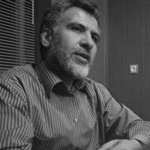Moderate Taliban: Reality or Illusion?

As a prelude, the Afghan government started reconciliation talks with Gulbuddin Hekmatyar’s Hezb-e Eslami (Islamic Party) delegation in Kabul. As official statements were released after the talks, it appears that no serious agreements have been made between the government and Hekmatyar’s party. The Taliban’s story is different from other insurgent groups, however.
Efforts to reach out to insurgents have snowballed since late 2009. When Hamid Karzai announced the establishment of the Consultative Peace Jirga in the inauguration speech of his second term of office in November 2009, it became clear that he had new plans and a strong intention to begin talks with anti-government forces. The release of insurgent prisoners was the Jirga’s key suggestion to Karzai.
The Supreme Peace Council that started its official activity in October following the Jirga debates was assigned to negotiate with insurgents by the Afghan president. The composition of the Peace Jirga proves that it has tried to correspond to the diversity of the Afghan society, and perhaps to show that reconciliation with insurgent groups is a national demand in this country.
Despite the initial publicity surrounding the Council and unofficial talks held at different levels between the two sides, no official talks have been held between the two involved parties to date. It seems that Taliban’s leadership, which resides out of Afghanistan, is unwilling to join the reconciliation process.
The Taliban continues to insist on withdrawal of foreign troops from Afghanistan as a precondition to start negotiations and join the peace process. The Peace Council, which symbolizes the Afghan government’s willingness to agree with (or even control) the insurgent groups, is still waiting for a heartwarming response from the Taliban and other groups.
Nevertheless, the Taliban’s pattern of conduct during its rule over Afghanistan has proven that they are not ready to share power or comply with some level of democratic behavior, even in case of integration. This does not, however, refute the existence of both radical and ‘moderate Taliban’ as real phenomena. In fact, the difference between the radical and moderate wings of the Taliban was noticeable even at the height of their power, when they controlled 95% of Afghan territory.
The major problem is that the general political circumstances in Afghanistan and the Taliban’s foreign supporters have suppressed the emergence of moderates from the Taliban’s political dynamics. The Taliban has now actually turned into a card manipulated by its supporters in regional games. The moderate wing has no opportunity to raise its voice, and faces a harsh reaction as it tries to come to the foreground. Mullah Mohammad Akhtar Osmani, treasurer of the group who had decided to follow a separate path, was killed in 2006. Another Taliban leader, high-ranking Mullah Baradar -who had actually established contact with Afghanistan’s government - was arrested in February 2010.
The totality of these developments proves the existence of a moderate mentality in some members of the Taliban insurgents, but this attitude has no chance to express itself as the Taliban is in need of foreign funding—which means moderate voices will be marginalized. Let’s not forget that denying the existence of a moderate Taliban opens the way for extremist wings to continue their grip on power inside the group.
Mohammad-Reza Bahrami is Iran’s former ambassador to Kabul.

